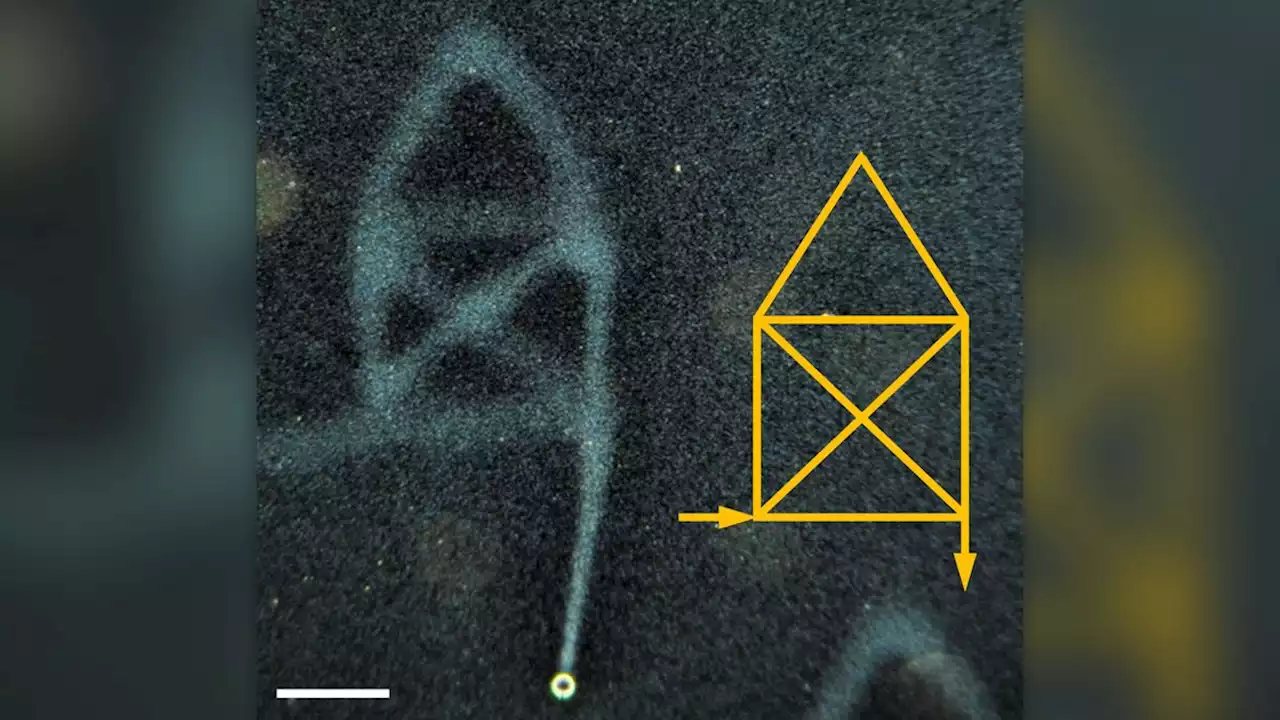Scientists are trying to understand how some ancient buildings have lasted for centuries in hopes of making modern buildings more durable.
The Hieroglyphic Stairway ascends at the Acropolis of Copan, an ancient Maya site in western Honduras, Saturday, Sept. 23, 2023. The 20 meter-high staircase is carved with more than 2000 glyphs. Stela B stands on the western side at the great plaza of Copan, an ancient Maya site in western Honduras, Saturday, Sept. 23, 2023. The Ball Court at the Acropolis of Copan, an ancient Maya site in western Honduras, Saturday, Sept. 23, 2023.
This reverse engineering has turned up a surprising list of ingredients that were mixed into old buildings — materials such as tree bark, volcanic ash, rice, beer and even urine. These unexpected add-ins could be key some pretty impressive properties, like the ability to get stronger over time and “heal” cracks when they form.
Most modern concrete starts with Portland cement, a powder made by heating limestone and clay to super-high temperatures and grinding them up. That cement is mixed with water to create a chemically reactive paste. Then, chunks of material like rock and gravel are added, and the cement paste binds them into a concrete mass.
The ability to keep adapting over time “is truly the genius of the material,” Jackson said. “The concrete was so well designed that it sustains itself.”At Copan, a Maya site in Honduras, intricate lime sculptures and temples remain intact even after more than 1,000 years exposed to a hot, humid environment.
México Últimas Noticias, México Titulares
Similar News:También puedes leer noticias similares a ésta que hemos recopilado de otras fuentes de noticias.
 How are ancient Roman and Mayan buildings still standing? Scientists are unlocking their secretsScientists are trying to understand how some ancient buildings have lasted for centuries in hopes of making modern buildings more durable
How are ancient Roman and Mayan buildings still standing? Scientists are unlocking their secretsScientists are trying to understand how some ancient buildings have lasted for centuries in hopes of making modern buildings more durable
Leer más »
 How are ancient Roman and Mayan buildings still standing? Scientists are unlocking their secretsScientists are trying to understand how some ancient buildings have lasted for centuries in hopes of making modern buildings more durable.
How are ancient Roman and Mayan buildings still standing? Scientists are unlocking their secretsScientists are trying to understand how some ancient buildings have lasted for centuries in hopes of making modern buildings more durable.
Leer más »
 How are ancient Roman and Mayan buildings still standing? Scientists are unlocking their secretsScientists are trying to understand how some ancient buildings have lasted for centuries in hopes of making modern buildings more durable
How are ancient Roman and Mayan buildings still standing? Scientists are unlocking their secretsScientists are trying to understand how some ancient buildings have lasted for centuries in hopes of making modern buildings more durable
Leer más »
 For 1st time, scientists write words in liquid waterScientists used a process called 'diffusioosmosis' to write words that lingered in liquid water.
For 1st time, scientists write words in liquid waterScientists used a process called 'diffusioosmosis' to write words that lingered in liquid water.
Leer más »
 Brazil's diversity makes country a testing ground for a global stem cell biobank, scientists sayA biobank for all, in which a person from any background could find a bone marrow donor for a stem cell transplant, is a major goal for stem cell science. While repositories of cell lines that could be a match for most patients are successfully materializing in some countries with genetically homogenous populations like Japan and the United Kingdom, how many more we need for a universal solution remains unknown. Researchers estimate at least 559 distinct cell lines would be required to cover 95% of the more diverse, and globally representative, people of Brazil.
Brazil's diversity makes country a testing ground for a global stem cell biobank, scientists sayA biobank for all, in which a person from any background could find a bone marrow donor for a stem cell transplant, is a major goal for stem cell science. While repositories of cell lines that could be a match for most patients are successfully materializing in some countries with genetically homogenous populations like Japan and the United Kingdom, how many more we need for a universal solution remains unknown. Researchers estimate at least 559 distinct cell lines would be required to cover 95% of the more diverse, and globally representative, people of Brazil.
Leer más »
 Viruses lurking in giraffe and lemur poop could lead to new antibacterial drugs, scientists sayScientists uncovered viruses that infect bacteria, called bacteriophages, in animal poop and are testing whether they could work as antibiotics.
Viruses lurking in giraffe and lemur poop could lead to new antibacterial drugs, scientists sayScientists uncovered viruses that infect bacteria, called bacteriophages, in animal poop and are testing whether they could work as antibiotics.
Leer más »
